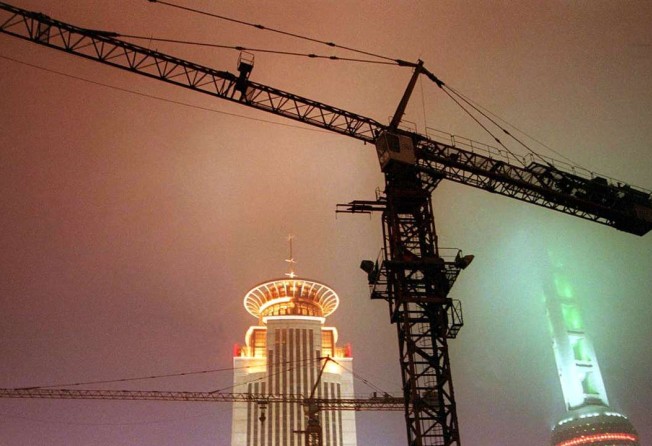For Shanghai property, time is money

“If you plan to buy a home, do it as soon as possible,” Zhuo Yue recently heard a passer-by tell his friend. Of late, she seems to be hearing that all the time – on the streets, at restaurants, from friends and at work.
And you won’t have to go far to find the reason. Home prices climbed 30 per cent last year in Shanghai according to industry insiders, where she moved from her hometown in Jiangsu province to join her husband two year ago. Though the official numbers look less alarming – new home prices rose 21.4 per cent in January from a year ago while second-hand units rose 14.4 per cent – Zhuo now understands why everyone is in a tearing hurry to buy a place.
The 29-year-old Zhuo, who aims to buy before having a baby, herself regrets not having done so earlier.
“Last spring, when I started looking into the property market, 80 square metre second-hand apartments near the Zhongchun Road subway station used to cost 2 million yuan. Now they’re going for 2.6 million yuan,” said Zhuo, who works as an accountant at a small local company and draws 6,000 yuan a month.
“The stock market was strong and I thought I should keep my investment there instead of putting the money into property. Never thought things would change so quickly,” she sighed.
Both old and new homes in the municipality jumped 2 per cent in January from the previous month, shows data from the National Bureau of Statistics. February was no different as the government sent out a series of positive signals for the real estate market. Among these, tax on real estate purchases was cut by half for first-time buyers of homes larger than 144 square metres.
Unlike Zhuo, Han Hongmei and her husband had spotted gold early. With their daughter poised to go to primary school in two years, the couple chose to sell their only home and bought a new one near a top-ranking school in Shanghai’s glitzy Pudong New Area to facilitate her admission.
They sold that property in January, only to find that they could have made 10 per cent more had they hung on to it for another month.
“I wish I could wait but I couldn’t afford to – we have to guarantee our daughter’s hukou (permanent residence registration) is moved to somewhere near the school as soon as possible so that she can be admitted (as per enrolment rules),” said Han.
“I think there’s always a market for homes near good schools and their prices will keep rising, so the sooner you buy it, the better.”
Wang Jingyu, a sales manager at leading property agent Lianjia, said he did not see a bubble. He believes it is mostly driven by demand, mainly from upgraders like Han.
Sensing an opportunity, some developers started hoarding new units, squeezing supply and pushing up prices even more. Among three new projects visited by the South China Morning Post, only one had a few apartments available for sale. Staff at the other two said they were not sure when sales would start.
Asked about the opening date and price range, Wang Hui, a saleswoman at a project named Pujiang Mansion in Minhang district, said with a wan smile: “I have no idea.”
But she would still advise clients to buy sooner rather than later. “I haven’t seen people regret buying a home too early, but often see people regret doing it too late,” she said.
She has clearly seen many like Zhuo. But for the young accountant, the regret comes with a dose of hesitation. “I have read about the Japanese property market history – it reached a peak in the early 1990s and then collapsed. What if the same thing happens here? How big a loss would that be to me?”